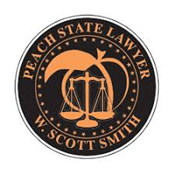Understanding Patel v. State: A Victory for Justice in Georgia Forfeiture Law
At W. Scott Smith P.C., we understand the immense stress and challenges faced by individuals charged with drug-related offenses or victims of property forfeiture. In Georgia, these cases often hinge on complex legal interpretations, and the state must meet stringent burdens of proof to justify its actions. A recent victory in the Patel v. State case serves as a crucial example of how the justice system can protect your rights—and why having an experienced attorney is essential.
The Case: Patel v. State of Georgia
In the Patel case, the Georgia Court of Appeals reversed a judgment ordering the forfeiture of currency seized from Jagrutiben Patel’s convenience store due to allegations of involvement in the possession and sale of products containing delta-8-THC. Patel argued that the products were legally classified as “hemp” under the Georgia Hemp Farming Act, not controlled substances. The court sided with Patel, ruling that the state had failed to meet its burden of proof.

The state claimed that edible gummies infused with delta-8-THC found at Patel’s store were controlled substances, making the seized currency subject to forfeiture. However, the law defines “controlled substances” in a very specific way. Under Georgia law, only products that exceed a federally defined concentration of delta-9-THC (not delta-8-THC) are considered controlled substances. The state failed to prove that the products contained more than 0.3% delta-9-THC, a critical point in the case.
Furthermore, the trial court incorrectly presumed that Patel’s products contained synthetic delta-8-THC, which might not be exempt from the controlled substances list. This presumption shifted the burden unfairly onto Patel, relieving the state of its obligation to prove its case. On appeal, the court found that the state did not establish by a preponderance of the evidence that Patel had engaged in conduct warranting forfeiture.

What This Means for You
If you’re facing charges related to drug trafficking or property forfeiture, Patel v. State is a shining example of how the state must meet its legal obligations before depriving you of your property or accusing you of criminal activity. The Court of Appeals reinforced that the burden of proof lies squarely with the state, and assumptions or weak evidence are not enough to justify forfeiture.
This case demonstrates that Georgia’s forfeiture laws hinge on precise legal definitions and scientific evidence. For instance, the state must prove not just the presence of THC in a product but also whether it meets the statutory criteria for a controlled substance. If the state fails to satisfy this burden, you may be entitled to reclaim your property and clear your name.
Why You Need a Skilled Attorney
The Patel case highlights the importance of having an experienced attorney who understands the nuances of Georgia’s forfeiture and controlled substances laws. W. Scott Smith P.C., we specialize in defending individuals accused of drug-related crimes and fighting unjust forfeiture claims. We know how to challenge faulty evidence, hold the state accountable to its burden of proof, and protect your rights.
Whether you’ve been accused of trafficking, possession, or your property has been unfairly seized, we can help. Our team will meticulously investigate your case, challenge improper presumptions made by the state, and ensure that your voice is heard in court.
Call Us Today for a Free Consultation
If you or someone you know is facing drug-related charges or property forfeiture in Georgia, don’t wait. The legal system can be intimidating, but with the right attorney by your side, you can fight back and secure justice. Contact W. Scott Smith P.C. at 404-581-0999 today for a free consultation. Let us put our expertise to work for you and take the first step toward resolving your case.
Remember, just like in Patel v. State, the law is on your side if the state fails to meet its burden of proof. Let us help you protect your rights, your property, and your future.

Disclaimer: This blog is for informational purposes only and does not constitute legal advice. If you are facing legal challenges, consult an attorney for personalized assistance.




 When a prospective client calls our office, they are usually understandably overwhelmed by the judicial system. The judicial system is complicated, and it is often taken for granted that many individuals do not have any experience navigating the complex system. In this article, I will break down each step in the process when you are facing criminal charges in Dekalb State Court.
When a prospective client calls our office, they are usually understandably overwhelmed by the judicial system. The judicial system is complicated, and it is often taken for granted that many individuals do not have any experience navigating the complex system. In this article, I will break down each step in the process when you are facing criminal charges in Dekalb State Court.